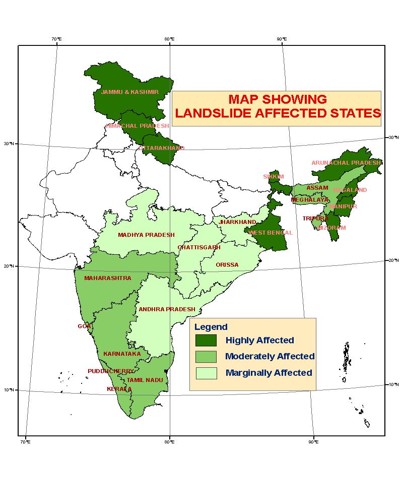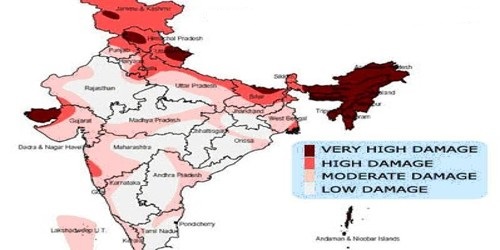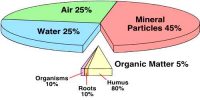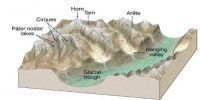Landslide Vulnerability Zones in India
A landslide is defined as the movement of a mass of rock, debris, or earth down a slope. It is a geologic procedure in which gravity causes rock, soil, simulated fill or a combination of the three to move down a slope. Several things can trigger landslides, including the slow weathering of rocks as well as soil erosion, earthquakes, and volcanic activity.
Very High Vulnerability Zone: Highly unstable, relatively young mountainous areas in the Himalayas and Andaman and Nicobar, high rainfall regions with steep slopes in the Western Ghats and Nilgiris, the north-eastern regions, along with areas that experience frequent ground-shaking due to earthquakes, etc. and areas of intense human activities, particularly those related to construction of roads, dams, etc. are included in this zone.

Fig: Landslide Vulnerability Zones in India
High Vulnerability Zone: Areas that have almost similar conditions to those included in the very high vulnerability zone are also included in this category. The only difference between these two is the combination, intensity, and frequency of the controlling factors. All the Himalayan states and the states from the north-eastern regions except the plains of Assam are included in the high vulnerability zones.
Moderate to Low Vulnerability Zone: Areas that receive less precipitation such as Trans-Himalayan areas of Ladakh and Spiti (Himachal Pradesh), undulated yet stable relief and low precipitation areas in the Aravali, rain shadow areas in the Western and Eastern Ghats and Deccan plateau also experience occasional landslides. Landslides due to mining and subsidence are most common in states like Jharkhand, Orissa. Chhattisgarh, Madhya Pradesh, Maharashtra, Andhra Pradesh, Karnataka, Tamil Nadu, Goa, and Kerala.
Other Areas: The remaining parts of India, particularly states like Rajasthan, Haryana, Uttar Pradesh, Bihar, West Bengal (except district Darjeeling), Assam (except district Karbi Anglong) and Coastal regions of the southern States are safe as far as landslides are concerned.
















